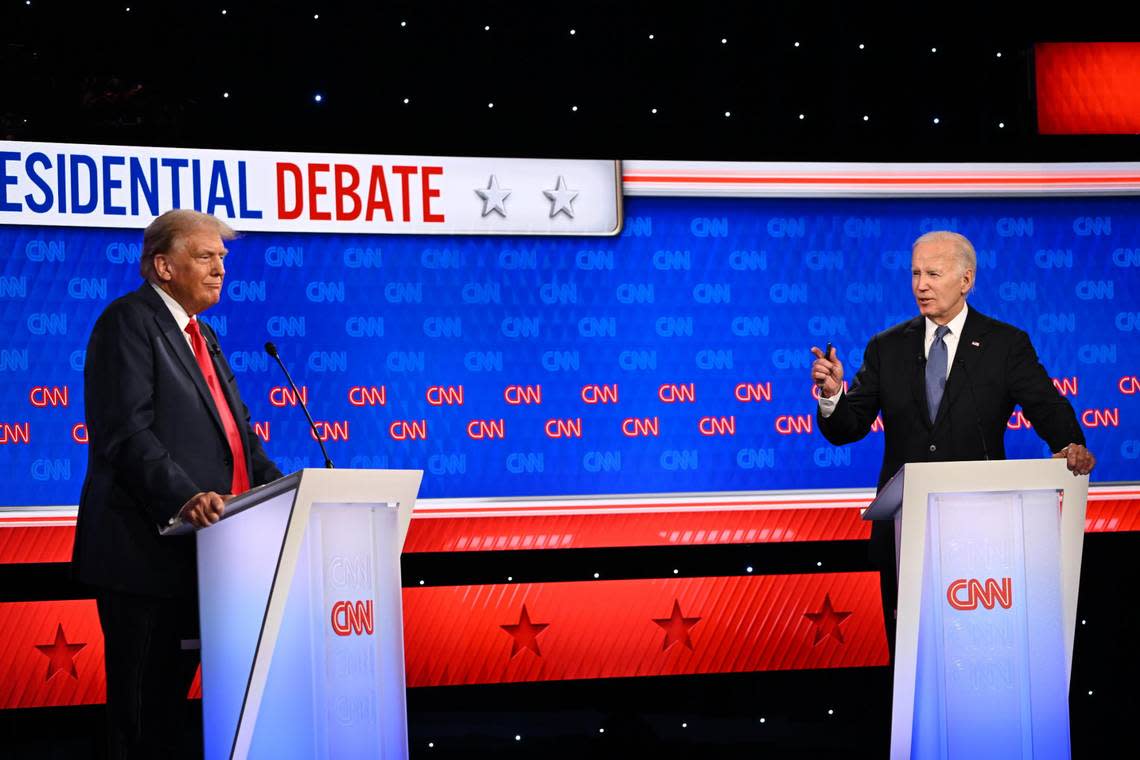Want to make presidential elections less painful? Let’s have fewer of them | Opinion

Mexico had the right idea when it limited presidents to a single, six-year term.
Same for Mongolia and the Philippines, which do the same.
A one-and-done term limit makes sitting presidents less beholden to donors, special interests and public opinion.
And six years should be enough time for presidents to accomplish what they set out to do — especially since they don’t have to clear their schedules for fundraising, cozying up to party leaders and worrying about approval ratings.
True, it would have some downsides for the U.S. For one, it would prolong the pain if you happen to get stuck with a president who is unfit for the job.
But there would still be safeguards. If presidents went too far off the rails, they could be impeached or their party could suffer big losses in mid-term elections.
It would not be easy to make the switch; it would require passage of a constitutional amendment.
I know what you’re thinking: Never gonna happen.
I’m thinking the same thing, especially since the idea has been broached several times before, never gained much traction and was dismissed by some well-respected thinkers.
But with major misgivings about Donald Trump and Joe Biden seeking second presidential terms, with both parties and the public fed up with two old men who won’t go away, maybe the time is right to have this conversation.
Beware of ‘perverse consequences’
In a 1986 op-ed in The New York Times, the late historian Arthur Schlesinger Jr. called the argument for a six-year term limit “superficially attractive” and feared that it could potentially lead to “perverse consequences.”
“It is a terrible idea for a number of reasons,” he wrote, “among them that it is at war with the philosophy of democracy.”
To bolster his case, he threw in a quote from George Washington:
‘’I can see no propriety in precluding ourselves from the service of any man, who on some great emergency shall be deemed universally most capable of serving the public.’‘
A few thoughts:
Heaven help the nation that has only one person who can effectively deal with a “great emergency.”
The Founding Fathers didn’t seem to care much about abuse of power. To wit, the Constitution originally included no term limits for presidents or members of Congress. If it weren’t for the 22nd Amendment, which limits presidents to two terms, we could have presidents for life. Sounds sort of like a monarchy, doesn’t it?
Why do we continue to revere a bunch of privileged white guys, many of whom were slave owners, to the point that we continue to believe they are all-wise and, therefore, their word should be law?
Political parties need to focus on the future — not on reelection
Granted, my interest in at least exploring the idea of a six-year term limit is at least partly born out of disgust and despair.
This is a frightening time for our nation. We will almost certainly be stuck choosing between two presidential candidates who are arguably unfit for office for very different reasons.
One comes across as old, feeble and forgetful, leading many voters to question whether he is capable of serving four more years.
The other candidate is not only old, he is also a convicted felon, a delusional liar and an all-around bad human being who, if he wins reelection, just might try to finagle a third term out of the Supreme Court — 22nd Amendment be damned.
Oh, and the leading third-party candidate is a raving conspiracy theorist trading on his family’s name.
This election cycle demonstrates, once again, that there is something fundamentally wrong with the way we go about selecting our presidential candidates.
Limiting presidents to one six-year term could force party leaders to look to the future and begin grooming the next generation of candidates, rather than obsessing over how to get the incumbent — or in this case, the former incumbent — reelected.
It would guard against a gerontocracy, which is becoming an increasing threat as aging politicians refuse to step down, effectively boxing out many potentially good leaders. (Here’s an idea: How about also limiting terms for members of Congress and the Supreme Court?)
It’s also been argued that incumbents seeking reelection have an unfair advantage over other candidates since they’ve had so much news coverage over the previous few years, though that can cut both ways. Just look at former President Jimmy Carter.
Finally, a six-year term limit would give voters a break; we would no longer be bombarded with campaign ads, requests for donations, robocalls, etc., every four years. It would just be every six.
We would also have a bigger and better pool of candidates to choose from, since the lack of an incumbent would encourage more candidates to enter the race.
Heck, that might even boost turnout.
Bottom line: Adopting a six-year term limit would make presidents less dependent on donors and special interests; give them more time to attend to the business of running the country; provide voters with more options in the primaries; and, ideally, result in stronger candidates in general elections.
Sorry, Mr. Schlesinger, but there’s nothing perverse about that.

